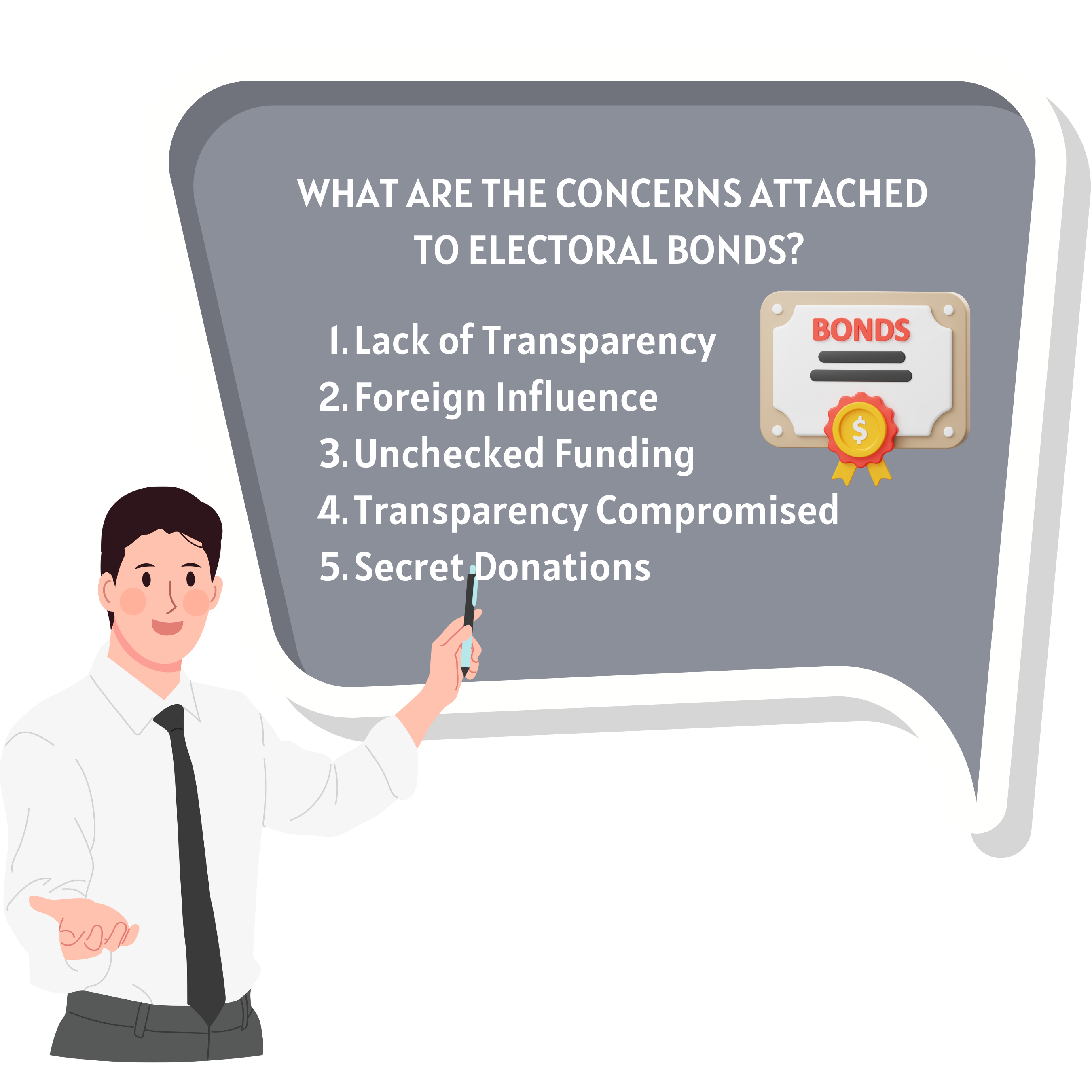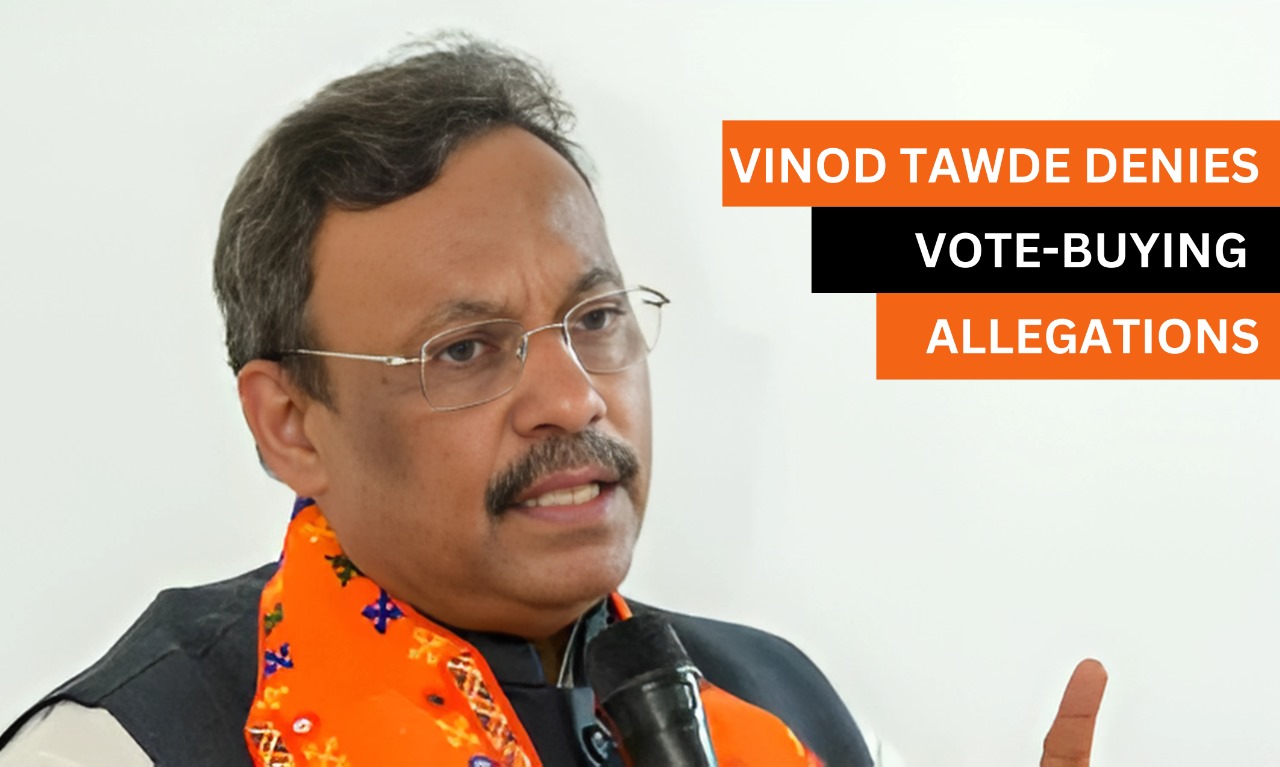Electoral Bonds: What is it, Features, Concerns, Way Forward

Lately, there has been a lot of buzz around electoral bonds, especially with the Supreme Court calling it unconstitutional. And you might know that electoral bonds are a political instrument to ensure transparency, but do you know how they really work?
Don’t worry if you don’t. Here, we will be covering everything about electoral bonds in the simplest way possible.
What will you learn?
What Are Electoral Bonds?
What Are the Features of Electoral Bonds?
What Are the Concerns Attached to Electoral Bonds?
What is the Way Forward?
What Are Electoral Bonds?
An electoral bond is a special kind of financial instrument introduced in 2017 to facilitate donations to registered political parties while keeping the identity of the donor anonymous. These bonds are issued by the State Bank of India in various denominations and are payable to the bearer on demand.
Electoral Bonds can be purchased by Indian citizens or entities established in India either individually or jointly with others. Electoral bonds serve as a means to make political donations transparent by ensuring that donations are made through banking channels and disclosing the bank account details of political parties to the Election Commission of India.
What Are the Features of Electoral Bonds?
From eligibility criteria to anonymity, there are several features of Electoral bonds (some of which have sparked sharp opinions from intellectuals across the country).
Eligibility Criteria:
Only political parties registered under the Representation of the People Act, 1951, and securing at least 1% of the votes in the last general elections can receive electoral bonds. This ensures that only recognized and significant parties benefit from this funding mechanism.
Purchaser Eligibility:
Only Indian citizens and entities incorporated in India can buy electoral bonds. This restricts the purchasing power to individuals and organizations with legal ties to India, preventing foreign interference in domestic political funding.
Currency and Validity:
All payments for electoral bonds must be made in Indian rupees, ensuring that transactions occur within the legal currency framework of the country. Additionally, the bonds are valid for 15 days from the date of issue, encouraging timely utilization and preventing hoarding or misuse.
Denomination and Limits:
Electoral bonds come in denominations starting from Rs. 1000, providing options for various contribution sizes. With no maximum limit set, donors can contribute as per their capacity, promoting inclusivity in political funding and avoiding discrimination based on contribution size.
Anonymity:
Electoral bonds provide anonymity to the donor, as the bond does not bear the donor’s name. This protects the donor’s right to privacy and prevents potential repercussions or biases based on political affiliations. Additionally, political parties are not required to disclose the source of funds received through electoral bonds, although they must file a return on their income via electoral bonds with the Election Commission. This anonymity ensures confidentiality in political donations while still promoting transparency in financial reporting.
What Are the Concerns Attached to Electoral Bonds?
There are several concerns with Electoral Bonds. The top 5 are listed below:
Lack of Transparency:
- Electoral bonds raise concerns because they don’t disclose who’s giving money to political parties. This means you can’t see where the money is coming from or who’s funding the parties.
- Without knowing the source of funds, it becomes challenging for citizens to understand potential conflicts of interest or hidden agendas behind political decisions.
Foreign Influence:
- Changes in laws related to political funding could allow foreign companies to donate money to Indian political parties. This could mean that decisions made by political parties are influenced by foreign interests rather than what’s best for the country.
- Allowing foreign donations might compromise the sovereignty of the nation and could lead to policies favoring foreign entities over the interests of Indian citizens.
Unchecked Funding
- Under the electoral bond scheme, there’s a worry that political parties might receive large amounts of money without having to report it. This could lead to unregulated funding, where parties get money without anyone knowing how much they’re getting or from whom.
- The lack of reporting requirements could create loopholes for individuals or entities to funnel unlimited amounts of money to political parties, potentially distorting the democratic process.
Transparency Compromised:
- The changes in laws around electoral bonds might make it hard to track where political parties are getting their money from. This could weaken the transparency in political funding, making it difficult for citizens to know who’s financing the parties.
- Diminished transparency can erode public trust in the political system, as citizens may feel disconnected from decision-making processes and perceive political parties as beholden to hidden donors rather than accountable to the electorate.
Secret Donations:
- Electoral bonds allow donors to remain anonymous, which means they don’t have to reveal their identity when giving money to political parties. This secrecy could lead to suspicions about the motives behind donations and raises questions about accountability in the political system.
- Anonymity in donations may encourage unethical practices such as quid pro quo arrangements or favors in exchange for financial support, undermining the integrity of the democratic process and fostering a culture of opacity in political financing.
By now you are fully equipped with the understanding of the major concerns that plague electoral bonds. Having learned about that, let’s take a look at what’s the way forward.
What is the Way Forward?
Moving forward with electoral bonds, it’s crucial to prioritize transparency and accountability in political funding. You can achieve this by demanding parties to disclose all bond donations, including donor details, and enforcing strict regulations to prevent foreign interference.
By implementing clear guidelines and oversight measures, you can ensure that funds are used appropriately and in line with regulations. Additionally, holding parties accountable through regular audits and disclosures to regulatory bodies will help maintain integrity in the system. Lastly, by raising awareness and promoting public trust, you can ensure that political funding serves the interests of the people, strengthening democracy for everyone.
This is all you need to know about Electoral Bonds, its features, concerns, and the way forward. Now with any discussion on electoral bonds you would not feel lost about what they really are. For informational guides like these and practical guides like how to save money as a salaried person, how to start investing etc., keep checking out this space.









